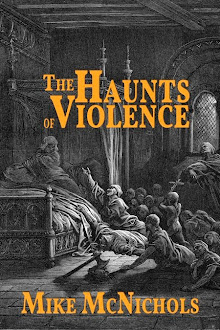
At the end of Matthew chapter 5—the end of the first third of what we call “The Sermon on the Mount—Jesus says some things that tend to drive people crazy:
“You have heard that it was said, ‘You shall love your neighbor and hate your enemy.’ But I say to you, Love your enemies and pray for those who persecute you, so that you may be children of your Father in heaven; for he makes his sun rise on the evil and on the good, and sends rain on the righteous and on the unrighteous. For if you love those who love you, what reward do you have? Do not even the tax collectors do the same? And if you greet only your brothers and sisters, what more are you doing than others? Do not even the Gentiles do the same? Be perfect, therefore, as your heavenly Father is perfect.” (Matthew 5:43-48)
It seems difficult to conjure up warm and fuzzy feelings toward people who wish you harm. But that may not be the point of love, and perhaps that’s not the point of what Jesus is saying.
God is the central player in the generous act of love, and Jesus affirms that as he describes the way that God cares for all people through the natural order of things. Love for the enemy, like all of God’s love, is an ongoing activity into which we are called to participate. In other words, God’s love is a party in process, and we’re always showing up at a celebration that is fully underway.
I like to think of things like love and hate as spinning cycles or wheels. You can either break the spinning of the cycle or you can latch onto it and enjoy the ride. You can join into the cycle of hatred and it will keep spinning faster and faster. You can also break that cycle by not offering it the energy it demands. In a similar way, you can jump into God’s cycle of love, allowing it’s power to carry you into places you could never go to on your own power. And even though you can never break God’s cycle of love, you can certainly refuse to participate in it.
I believe there are a number of things that work this way, things like love, forgiveness, and generosity. That’s why what Jesus says at the end of the quotation is so important to us:
“Be perfect, therefore, as your heavenly Father is perfect.”
In the Greek of the New Testament, the word that we often translate as “perfect” can also be “mature” or “complete.” This is not an impossible call to strive toward perfection, but rather a call to participate in the generous, loving, life of God, to launch our lives into the spinning cycle of his reckless love—a love that has universal impact. Love finds perfection, not in our flawlessness, but in our vulnerable engagement with God’s love.




























